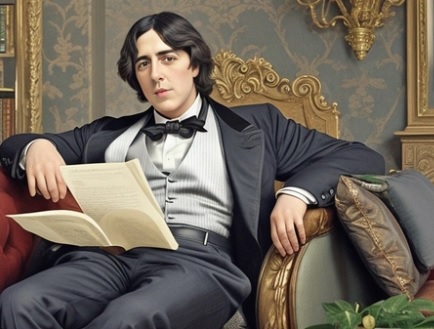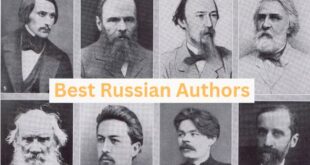Oscar Wilde (1854-1900)
Oscar Wilde, the renowned Irish playwright, poet, and novelist of the late 19th century, left an indelible mark on literature with his sharp wit, keen observation of society, and mastery of the comedic form. His plays, in particular, are celebrated for their wit, satire, and exploration of societal norms. Let’s delve into the timeless legacy of Oscar Wilde plays.
1. “The Importance of Being Earnest” (1895)
Oscar Wilde is celebrated for his witty comedies of manners, like “The Importance of Being Earnest,” which satirize societal conventions with humor and insight. “The Importance of Being Earnest,” is a comedic masterpiece that satirizes the social conventions and manners of Victorian society.
The play revolves around the dual identities of its protagonists, Jack Worthing and Algernon Moncrieff, who adopt the pseudonym “Ernest” to escape social obligations. Through witty dialogue and absurd situations, Wilde skewers the hypocrisy, triviality, and absurdity of the upper class, particularly concerning marriage, social status, and morality. The play’s enduring popularity lies in its timeless themes and unforgettable characters, making it a staple of theater productions worldwide.
2. “Lady Windermere’s Fan” (1892)
“Lady Windermere’s Fan” is a comedic play that explores themes of scandal, morality, and the complexities of marriage. The plot centers on Lady Windermere, a virtuous young woman who suspects her husband of infidelity.
As the drama unfolds, Wilde expertly navigates the intricacies of Victorian society, revealing the hypocrisy and double standards that govern the lives of its characters. Through sharp dialogue and unexpected twists, Wilde delivers a scathing critique of societal norms while providing insight into the human condition.
3. “An Ideal Husband” (1895)
In “An Ideal Husband,” Wilde delves into the themes of politics, blackmail, and the nature of honor and integrity. The play follows the story of Sir Robert Chiltern, a respected politician whose past misdeeds come back to haunt him when he is blackmailed by the scheming Mrs. Cheveley.
As the plot unfolds, Wilde explores the complexities of morality, the consequences of past actions, and the true meaning of honor. With its witty repartee and clever plot twists, “An Ideal Husband” remains a timeless exploration of ethics and human frailty.
4. “A Woman of No Importance” (1893)
“A Woman of No Importance” is a scathing indictment of the double standards faced by women in Victorian society. The play centers on the character of Mrs. Arbuthnot, a woman with a scandalous past who is ostracized by polite society.
Through her story, Wilde exposes the hypocrisy and injustice inherent in the treatment of women, while also delving into themes of morality, forgiveness, and redemption. With its biting wit and incisive social commentary, “A Woman of No Importance” remains a powerful exploration of gender roles and societal expectations.
5. “Salomé” (1891)
While not a traditional comedy like his other works, “Salomé” is a one-act tragedy that showcases Wilde’s versatility as a playwright. Written originally in French, the play depicts the biblical story of Salome and her demand for the head of John the Baptist.
Infused with sensuality and symbolism, “Salomé” explores themes of desire, power, and the destructive nature of obsession. Wilde’s lyrical prose and vivid imagery create a haunting and unforgettable theatrical experience.
In addition to these plays, Wilde’s repertoire includes other notable works such as “The Duchess of Padua” and “Vera; or, The Nihilists,” each offering its own unique insights into the human condition and the society of Wilde’s time.
Despite being over a century old, Oscar Wilde plays continue to captivate audiences with their timeless themes, razor-sharp wit, and enduring relevance. Through his insightful commentary and unforgettable characters, Wilde remains a towering figure in the world of theater, his legacy secure as one of the greatest playwrights of all time.
Read More:
- The Importance of Being Earnest Summary
- A Portrait of the Artist As a Young Man Summary
- 10 Best American Poets

